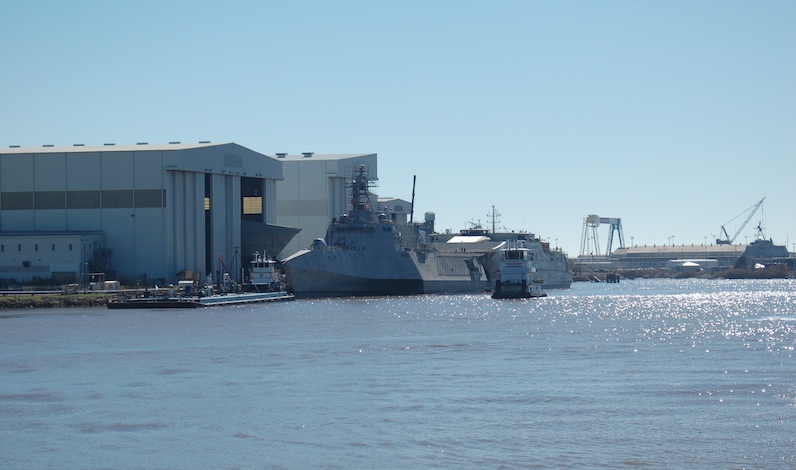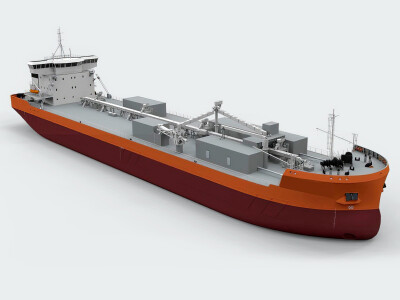Charleston (LCS 18), the ninth 421'6"x103.7' Independence-variant littoral combat ship (LCS) built by Austal USA, Mobile, Ala., successfully completed acceptance trials in mid-July in the Gulf of Mexico.
To reach the milestone, Charleston executed comprehensive tests while underway, which demonstrated to the Navy the successful operation of the ship’s major systems and equipment. Acceptance trials are the last significant milestone before delivery of the ship. LCS 18 will be the third Independence-variant LCS Austal delivered to the Navy in 2018.
Each aluminum LCS is powered by twin 12,200-hp MTU 20V8000 diesel engines and two 29,500-hp General Electric LM2500 gas turbines.
“By the end of the year, we will have delivered three LCS to the Navy, including LCS 18," Austal USA president Craig Perciavalle said in a statement, "no small accomplishment and a direct result of the hard work and dedication of Austal’s incredible shipbuilding team, the exceptional teamwork with all of our suppliers, and the support of our local, state, and federal legislators.”
The LCS program is at full rate production and is continuing at Austal USA with several ships currently under construction, including Charleston. Cincinnati (LCS 20) has launched and is preparing for trials. Final assembly is well underway on Kansas City (LCS 22) and Oakland (LCS 24). Modules for the future Mobile (LCS 26) are under construction in the module manufacturing facility and construction on Savannah (LCS 28) began in mid-July.
Seven Austal-built Independence-variant LCSes are homeported at the San Diego Navy Base. “I was very excited to hear about the great things our ships are doing for the fleet during my recent trip to San Diego and was even more excited to hear about the Navy’s future plans,” Perciavalle said. “As we continue to grow to a 355-ship Navy, I am confident these small surface combatants will continue to contribute to the distributed lethality of our nation’s global force structure.”





